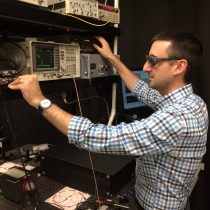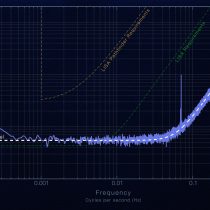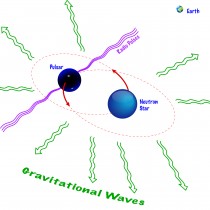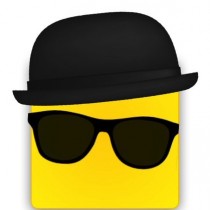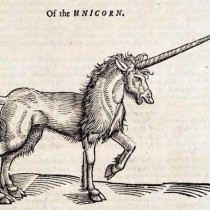Gravitational Waves and Cosmic Collisions: 5 Questions with Dr. Ryan DeRosa
- By Raleigh McElvery
- October 10, 2017
- Comments Off on Gravitational Waves and Cosmic Collisions: 5 Questions with Dr. Ryan DeRosa
Meet Dr. Ryan DeRosa, one of the newest additions to our Astrophysics Science Division. His research is pretty out there, and we mean that literally since he aims to detect cosmic reverberations from billions of light-years away. He started out working on the massive, L-shaped gravitational wave detectors of the … Continue Reading →
The freest of free-falls
- By Ira Thorpe
- June 8, 2016
- Comments Off on The freest of free-falls
It’s hard to get used to the change of pace. Scientists have been laboring for half a century to detect gravitational waves from astrophysical sources. In 1966, Joseph Weber published the first results from a device he had invented to detect gravitational waves. Weber would later famously claim to have … Continue Reading →
We Knew That Already
- By Koji Mukai
- March 17, 2016
- Comments Off on We Knew That Already
The Advanced LIGO group announced the first direct detection of gravitational waves on February 11, 2016 – it was a momentous day for physics and astrophysics. But the way some news outlets have reported it, saying things like “this proves Einstein was right,” sounds a little bit off to me: … Continue Reading →
Release the beasts!
- By Ira Thorpe
- February 29, 2016
- Comments Off on Release the beasts!
Captain A. G. Lamplugh, a British pilot from the early days of aviation once famously said “Aviation in itself is not inherently dangerous. But to an even greater degree than the sea, it is terribly unforgiving of any carelessness, incapacity or neglect.” Space flight is less forgiving still. A single … Continue Reading →
Chasing Unicorns
- By Ira Thorpe
- December 3, 2015
- Comments Off on Chasing Unicorns
Although the incident happened nearly ten years ago, I still remember it clearly. I was a newly-minted NASA scientist and was attending a workshop about future space-based scientific facilities. At a coffee break I started chatting with some other young scientists, one of whom asked what I worked on. I … Continue Reading →


